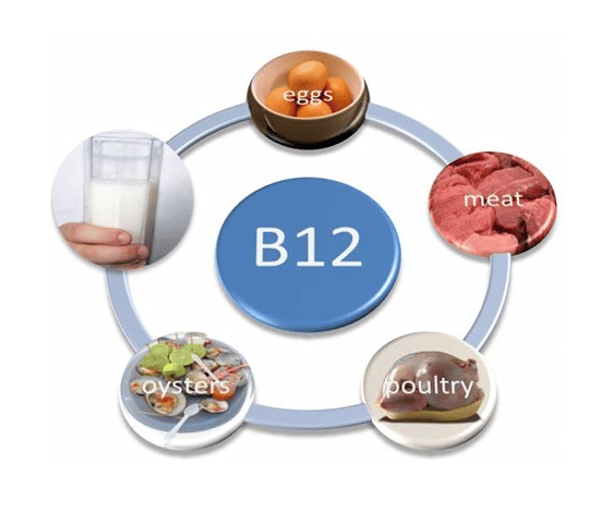
Vitamins and minerals are vital after bariatric surgery for long term health and well being. This article contains a guide to each vitamin and mineral including which foods contain the highest levels, recommended daily intake and signs of deficiencies.
Calcium
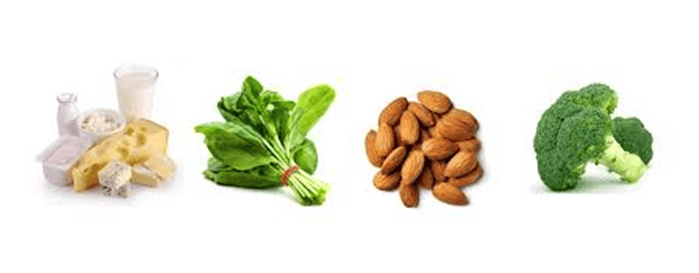
Why is Calcium Important?
Calcium is essential for building and maintaining bone. Almost 99% of the body’s calcium is found in the bones. Calcium combines with other minerals to form hard crystals that give your bones strength and structure.
Signs of deficiency:
- – Leg cramping or stiffness
- – Muscle weakness
- – Weakening of bones & increased risk of fractures
- – Osteoporosis
Recommended daily intake after most bariatric surgeries: 1200-1500mg/day
Food sources:
- – Calcium enriched milk i.e. PhysiCal (1 cup – 500mg)
- – Skim milk (1 cup – 340mg)
- – Reduced fat soy milk (1 cup – 370mg)
- – Yoghurt i.e. Chobani plain (200g – 500mg)
- – Reduced fat cheddar cheese (20g -200mg)
- – Firm Tofu (1/2 cup – 400mg)
- – Sardines canned in water (90g tin – 500mg)
- – Salmon canned in water (90g – 280mg)
Calcium is poorly absorbed from foods rich in oxalic acid (eg spinach, rhubarb, beans) or phytic acid (seeds, nuts, grains, certain raw beans and soy isolates).
Copper

Why is copper important?
Copper is an essential nutrient for the body. Together with iron, it enables the body to form red blood cells. It helps maintain healthy bones, blood vessels, nerves, and immune function, and it contributes to iron absorption. Sufficient copper in the diet may help prevent cardiovascular disease and osteoporosis, too. Copper is an essential nutrient for the body. Together with iron, it enables the body to form red blood cells. It helps maintain healthy bones, blood vessels, nerves, and immune function, and it contributes to iron absorption. Sufficient copper in the diet may help prevent cardiovascular disease and osteoporosis, too.
Signs of deficiency:
- – Loss of balance while walking
- – Hypo pigmentation of hair, skin, nails
- – High cholesterol
- – Anaemia
Recommended daily intake after most bariatric surgeries: 1-2mg/day
Food sources:
- – Mushroom (1/2 cup – 0.5mg)
- – Avocado (1/4 – 0.25mg)
- – Cashews (1/4 cup – 0.8mg)
- – Pumpkin Seeds (1/4 cup – 0.7mg)
- – Sunflower Seeds (1/4 cup – .6mg)
- – Walnuts (1/4 cup – 0.5mg)
Folate
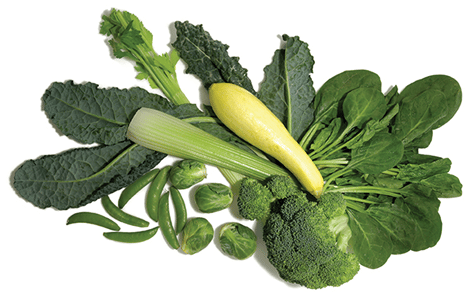
Why is Folate Important?
Our bodies need folate to make DNA and other genetic material. Folate is also needed for the body’s cells to divide. Folate is particularly important for women who are pregnant or wanting to fall pregnant as it prevents birth defects.
Signs of deficiency:
- – Colour changes or ulceration of skin, nails, or oral mucosa
- – Anaemia that results in weakness, fatigue, irritability and palpitations
Recommended daily intake after most bariatric surgeries: 400 – 800mcg/day
Food sources:
- – Spinach, cooked (1/2 cup – 130mcg)
- – Artichoke, cooked (1/2 cup – 100mcg)
- – Broccoli, cooked (1/2 cup – 90mcg)
- – Asparagus, cooked (4 sprouts – 130mcg)
- – Avocado (1/4 – 40mcg)
- – Brussel sprouts, cooked (6 sprouts – 80mcg)
- – Lentils, cooked (3/4 cup – 260mcg)
- – Legumes/beans (3/4 cup – 200mcg)
- – Sunflower seeds (1/4 cup – 80mcg)
- – Vegemite (1tsp – 360mcg)
Iron
Why is Iron Important?
Iron is vital for transporting oxygen to tissues throughout the body.
Signs of deficiency:
- – Anaemia leading to fatigue
- – Decreased work performance
- – Impaired learning ability
- – Decreased immune function
- – Difficulty swallowing
- – Rapid heart rate/palpitations
Recommended daily intake after most bariatric surgeries: 45 – 60mg elemental iron/day
Food sources:
- – Red meat (100g cooked – 3.1mg)
- – Pork (100g – 1.4mg)
- – Chicken (100g – 0.9mg)
- – Tuna (100g – 1mg)
- – Sardines (120g – 3.24mg)
- – Chickpeas (100g – 6.2mg)
- – Spinach (1/2 cup cooked – 2.2mg)
- – Cashews (2 tbsp – 2.5mg)
NOTE: Iron from plant sources is less bio available. To improve absorption, have vitamin C with plant-based iron and eat meat, fish and poultry.
Selenium
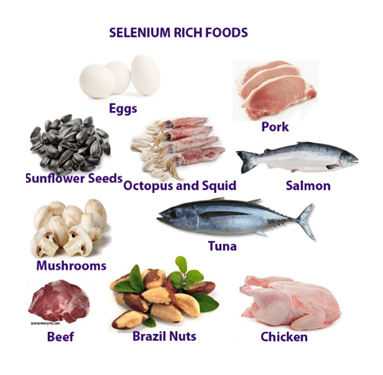
Why is Selenium Important?
Selenium, an essential trace mineral, is an important component of many enzymes and proteins in the human body. Selenium-dependant compounds act as antioxidants, regulate thyroid function, and play significant roles in immune function, detoxification, and muscle metabolism.
Recommended daily intake after most bariatric surgeries: RDI can easily be achieved through food sources;
Men – 70mcg/day
Women – 60mcg/day
Pregnancy – 65mcg/day
Safe Upper Limit 400mcg/day
Signs of Deficiency: Very rare in general population;
- – Muscle wasting/muscle weakness
- – Weakened immunity
- – Whitened bed of nails
- – Thyroid abnormalities e.g. thyroid eye disease (TED)
- – Depression
- – Increased risk of breast cancer
- – Infertility in men and women
- – Loss of skin and hair pigmentation (severe cases only)
Food Sources:
- – Brazil nuts (6-8 nuts 544mcg, >100% RDI)
- – Yellow fin tuna (85g 92mcg, >100% RDI)
- – Sardines, canned (85g 45mcg)
- – Grass fed beef (85g 33mcg)
- – Boneless Turkey (85g 31mcg)
- – Beef liver (85g 28mcg)
- – Chicken (85g 22mcg)
Absorption/Storage:
Selenium in the diet comes in two primary forms: selenoproteins that occur naturally in plant and animal products and sodium selenite that is fed to animals in areas with selenium-poor soil or is found in some dietary supplements. Sodium selenate is also used in nutritional products. Selenium is generally well absorbed, although it is believed that selenomethione is the best-absorbed form. Selenomethionine has been demonstrated to be up to 90 percent bioavailable in studies of absorption. Most absorption of selenium occurs in the duodenum; some can occur in the jejunum and ileum. Absorption appears to be enhanced by the presence of other antioxidants, such as vitamins E and C. Mercury and other heavy metals inhibit absorption.
Once absorbed, selenium is transported by low and very low density lipoproteins (LDL and VLDL). It is then incorporated into the selenoproteins by a process that is not fully understood. Selenium can be stored in selenoproteins and muscle, as well as in some organs, such as the liver, kidney, and pancreas. The body stores about 15 milligrams of selenium in total.
Supplementation for Bariatric Surgery:
There is insufficient evidence to support routine Selenium screening or supplementation after bariatric surgery. However, selenium levels should be checked in patients with a gastric bypass bariatric surgical procedure who have unexplained anaemia or fatigue, persistent diarrhoea, cardiomyopathy, or metabolic bone disease. Selenium supplements was not included in the 2016 ASMBS update for Nutritional Guidelines.
Thiamin
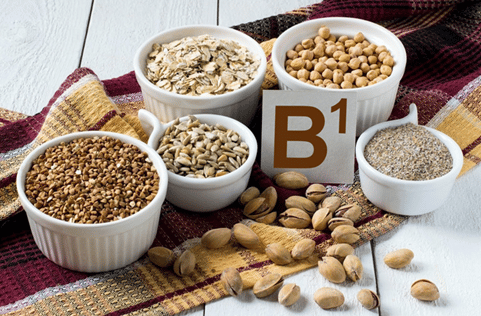
Why is Thiamin Important?
Thiamin supplies energy to the body’s muscles and is used in the metabolism of carbohydrate, protein and fat. Thiamin also plays a role in muscle contraction and conduction of nerve signals.
Recommended daily intake after most bariatric surgeries: 50mg/day
Signs of deficiency:
- – Heart failure
- – Reduced consciousness and confusion
- – Muscle weakness
- – Nausea and vomiting
- – Constipation
- – Nerve damage
- – Memory loss and the inability to retain new memories. Deficiencies can cause permanent brain damage.
Food sources:
- – Wheat germ (1/4 cup – 0.5mg)
- – Oatmeal, cooked (3/4 cup – 0.72mg)
- – Pork (75g – 1mg)
- – Sunflower seeds (1/4 cup – 0.5mg)
- – Beans, cooked (3/4 cup – 0.3mg)
- – Vegemite (1 tablespoon – 4.3mg)
NOTE: alcohol prevents your body from absorbing thiamin and can increase your risk of deficiency.
Vitamin A
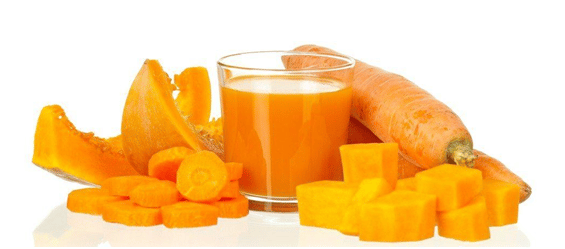
Why is Vitamin A Important?
Vitamin A is a fat-soluble vitamin that is also a powerful antioxidant. Vitamin A plays a critical role in maintaining healthy vision, neurological function, healthy skin, and more. Vitamin A, like all antioxidants, is involved in reducing inflammation through fighting free radical damage.
Recommended daily intake after most bariatric surgeries: 900-1800mcg/day
Signs of deficiency:
- – Night blindness or difficulty seeing in dim light
- – Poor wound healing
- – Loss of taste
- – Xerosis (dry skin)
- – Keratomalacia (eye disorder that involves drying and clouding of the cornea)
- – Corneal damage and perforation
- – Blindness
Food sources:
- – Sweet potato (1/2 small – 500mcg)
- – Pumpkin (1/2 cup – 1007mcg)
- – Cooked carrot (1/2 cup – 700mcg)
- – Carrot juice (1/2 cup – 960mcg)
- – Cheese (50g – 220mcg)
- – Spinach (1/2 cup – 500mcg)
- – Lettuce (1 cup – 260mcg)
- – Milk (1 cup skim – 160mcg)
Your BN Multivitamins do not cover 100% of your daily requirements, which is why the above foods are essential. If you require additional Vitamin A, your Dietitian or Bariatric Medical Practitioner will discuss this with you.
Vitamin B12

Why is Vitamin B12 Important?
Vitamin B12 is a water-soluble vitamin that is naturally present in some foods, added to others, and available as a dietary supplement. Vitamin B12 is important for red blood cell formation, brain function, and DNA synthesis.
Recommended daily intake after most bariatric surgeries: 350-500mcg/day
What can happen if you don’t get enough B12:
- – Anaemia
- – Fatigue and shortness of breath
- – Diarrhoea
- – Loss of coordination
- – Damage to nerves, spinal cord and brain
- – Lightheadedness or vertigo
- – Heart palpitations or heart failure
- – Altered mental status
Food sources:
- – Beef (75g) – 2.4-2.7mcg
- – Low fat milk (1 cup) – 1.23mcg
- – Cheese (50g) – 0.7-0.9mcg
- – Eggs (2 x large cooked) – 1.5-1.6mcg
- – Red Salmon (75g) – 4.4mcg
- – Sardines (75g) – 6.8mcg
Vitamin D
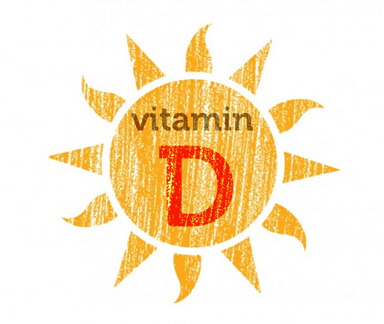
Why is Vitamin D Important?
Vitamin D is a group a fat-soluble vitamin responsible for a range of functions in the human body. It assists in increasing intestinal absorption of calcium, magnesium and phosphate. Vitamin D is also essential in bone growth, and it is used in the maintenance of several organ systems as well as the immune system.
Recommended daily intake after most bariatric surgeries: 3000 IU/day
Signs of deficiency:
- – Increased risk of fractures
- – Reduced bone strength
- – Bone and joint pain
- – Muscle weakness
- – Problems with digestive tract
- – Fatigue and tiredness
- – “Head sweating”
Food sources:
Very few foods in nature contain Vitamin D.
- – Flesh of fatty fish (salmon, tuna, and mackerel)
- – Fish liver oils
- – Small amounts found in beef liver, cheese, egg yolks
Sun Exposure:
Vitamin D is produced through the exposure of skin to ultraviolet B (UVB) radiation in sunlight. For most Australians sunshine is the main source of vitamin D. However, the amount of sun exposure required will vary based on season, location, area of skin exposed and skin type.
Summer (South East QLD)
Fair skin – 6-7 minutes
Dark skin – 20-45 minutes
Winter (South East QLD)
Fair skin – 10 mins
Dark skin – 30-60 minutes
Vitamin K
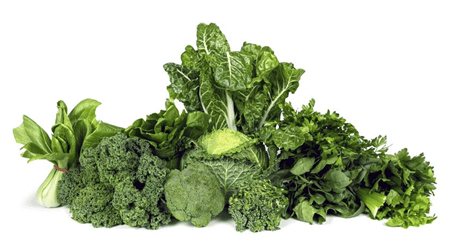
Why is vitamin K Important?
Vitamin K is a fat-soluble vitamin that plays an essential role in blood clotting and maintaining strong bones.
Recommended daily intake after most bariatric surgeries: 300mcg/day for prevention of deficiency and maintenance.
Signs of deficiency:
- – Easy bruising
- – Excessive bleeding
- – Heavy menstrual periods
- – Possible risk of weakened bones
Food sources:
Vitamin K in food comes from dark green leafy vegetables, for example;
- – ½ cup cooked silver beet – 287 mcg
- – ¼ cup cooked kale – 265mcg
- – ¼ cup cooked spinach – 222mcg
- – ½ cup raw Asian greens – 120mcg
- – ½ cup cooked broccoli – 110mcg
- – ½ cup brussels sprouts – 109mcg
- – ½ cup cooked cabbage – 82mcg
- – ½ cup raw spinach – 72mcg
- – 1 cup dark green leaf lettuce – 71mcg
- – 1 cup green peas – 63mcg
- – 1 cup cos lettuce – 57mcg
- – 1 cup green beans – 53mcg
Zinc
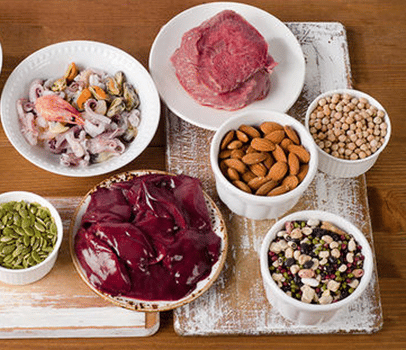
Why is Zinc Important?
Zinc supports normal growth and development for all ages. It also helps your body use carbohydrates, protein and fat, strengthens the immune system, and helps heal wounds. Zinc is a vital mineral for healthy hair, skin and nails.
Recommended daily intake after most bariatric surgeries: 8-11mg/day
Signs of deficiency:
- – Rash, acne
- – Change or loss of taste- Immune deficiency, increased infections
- – Infertility
- – Hair loss
- – Skin lesions
- – Diarrhoea
- – Night blindness
- – Delayed wound healing
Food sources:
- – Lean beef (75g – 7-8mg)
- – Lean lamb (75g – 4-6mg)
- – Pumpkin seeds (1/4 cup – 3-4mg)
- – Wild oysters cooked (75g – 50mg)
- – Baked beans (3/4 cup – 4mg)
- – Wheat germ (2 Tbsp – 2.4mg)
It is important to have adequate protein in the diet as this improves zinc absorption.
See our list of healthy recipes rich in vitamins and minerals
